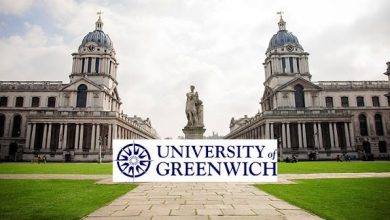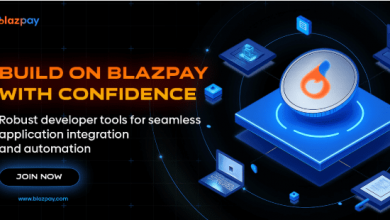Breaking the Blockade: How the MATW Project Brought Compassion and Livestock to Gaza This Eid al-Adha
For many around the world, Eid al-Adha is a time for feasting, reflection, and togetherness. But in Gaza, where war has displaced families and fresh food hasn’t crossed the border in months, this sacred holiday has become a painful reminder of the absence, of what’s missing, what’s lost, and what may never return. This year, one global charity changed that.
During a blockade that has halted even basic humanitarian aid, the Muslims Around The World (MATW) Project became the only known organization to successfully deliver live Qurban livestock into Gaza for Eid ul-Adha. With 2,300 sheep safely transported and ethically sacrificed, more than 236,000 Palestinians were able to share in one of Islam’s most meaningful traditions and experience something that had nearly disappeared: dignity.
But this wasn’t just about meat. This was about memory. Identity. The power of human connection in a place where hope has been rationed like bread. Delivering aid to Gaza isn’t new. But delivering live animals into a closed-off war zone is a logistical feat that most international agencies won’t even attempt. MATW did more than attempt; they delivered.
While much of the world watched Gaza’s suffering through filtered headlines and distant updates, MATW teams worked quietly behind the scenes, navigating border permissions, animal health inspections, and blockade protocols during wartime. Their mission was clear: not just to feed people, but to restore their faith in the world.
For Eid al-Adha 2025, they did exactly that. The 2,300 Qurban sheep were distributed directly to families in Gaza. According to MATW’s internal data, each sheep reached an estimated 100 individuals, resulting in over 236,000 people receiving fresh, halal meat during the holiday. In a place where many haven’t tasted meat in months, the impact went far beyond calories.
“It wasn’t a delivery,” said Chase Alley, executive at MATW Project USA. “It was a message. That someone still sees them. That they’re not forgotten.”
Qurban is a ritual that commemorates the Prophet Ibrahim’s willingness to sacrifice what he loved most in obedience to God. But instead of taking his son’s life, the story ends with divine mercy; a ram is sacrificed in his place. Today, Muslims around the world honor this by sacrificing livestock and sharing the meat, especially with the poor.
In places like Gaza, Qurban isn’t just symbolic, it’s survival. With no consistent access to fresh produce or protein, Eid al-Adha may be the only time in the year when some families can eat meat. For displaced or orphaned children, it’s a moment of belonging. A meal that tells them: you are still part of this world.
MATW Project didn’t achieve this milestone through massive fundraising campaigns or flashy branding. They did it through a commitment most organizations won’t dare make: a 100% donation model. This means that every dollar donated by the public goes directly to those in need. Operational expenses, travel costs, logistics, and even salaries are covered by private donors and dedicated endowments. That level of transparency is rare in the nonprofit world, and it’s part of what makes MATW different.
“Our donors trust us because we treat every dollar as a sacred trust,” said Mahmoud Ismail (Mac), CEO of MATW Project USA and longtime friend of the charity’s late founder, Ali Banat. “We ask ourselves one question before every project: Would Ali be proud of this? If the answer isn’t yes, we don’t do it.”
Ali Banat was once a millionaire businessman in Sydney. He owned a successful security company, drove luxury cars, and lived what many would call “the dream.” That all changed in 2015 when he was diagnosed with terminal cancer at just 33 years old. But instead of despair, Banat saw opportunity.
He called his diagnosis “a gift from Allah.” He shut down his business, sold off all his possessions, and began spending every dollar to care for orphans, build water wells, and fund medical projects in war zones and forgotten villages. Before passing in 2018, he founded the MATW Project as a commitment. A movement built on love.
“We don’t help people because they’re Muslim. We help them because we are,” Ismail said, echoing Banat’s original philosophy. “That’s who Ali was. And it’s who we are now.”
MATW isn’t a one-time response charity. It’s a global humanitarian force, currently operating across Palestine, Egypt, Lebanon, Pakistan, Syria, Yemen, Sudan, Indonesia, and parts of Africa to name a few. Here’s what that looks like in some of MATW’s numbers:
- 12,400+ orphans under MATW care in Gaza
- Over 1.3M hot meals distributed in Gaza since October 2023
- 441,000+ food packs and 35M+ liters of water delivered
- A refugee resettlement program in Egypt offering housing, food, and mental health support
And it’s still growing. The long-term vision? To provide for over 500,000 orphans globally, build more orphanages and hospitals, and expand humanitarian access to places most organizations avoid.
One of MATW’s most defining traits is its apolitical approach. In an era where nearly every humanitarian issue is viewed through a political lens, MATW’s stance is simple: Serve people. Leave politics behind. “We don’t care who’s in power. We care who’s hungry,” said Ismail. “We go where the need is, whether that’s Gaza, Yemen, or a drought-stricken village in West Africa.”
This clarity of mission allows MATW to move faster, reach deeper, and build trust with communities who’ve grown wary of promises that never materialize.
Gaza is enduring one of the most prolonged humanitarian crises in modern memory. Food is scarce. Medical care is collapsing. Entire neighborhoods have been flattened. And yet, even in that darkness, Eid came. And MATW came with it. They didn’t bring politics or platitudes. They brought livestock. Fresh meat. A prayer. A reason to believe. Because at its core, Qurban isn’t about sacrifice, it’s about mercy.
And in a world fractured by ideology and fear, MATW Project is quietly building something radical: a movement that feeds, shelters, and heals simply because it’s the right thing to do.





